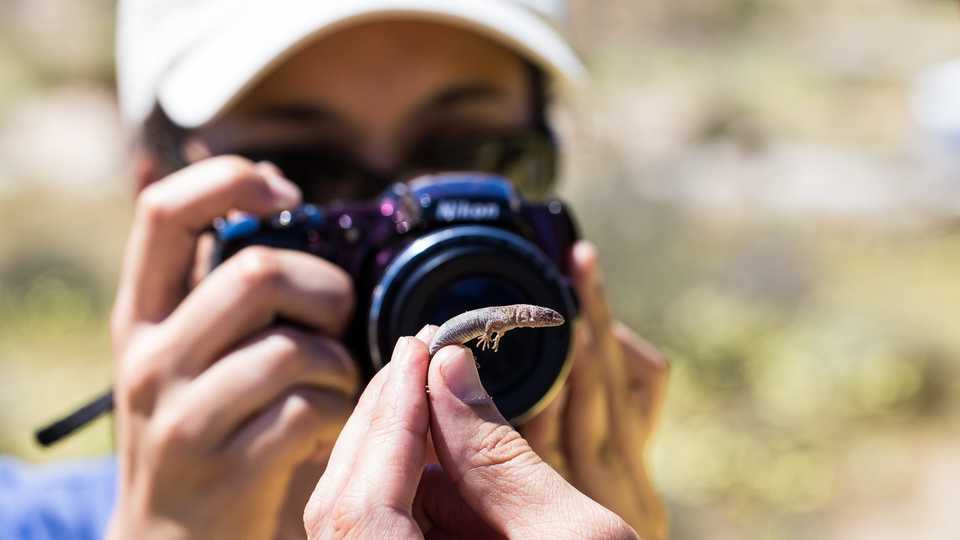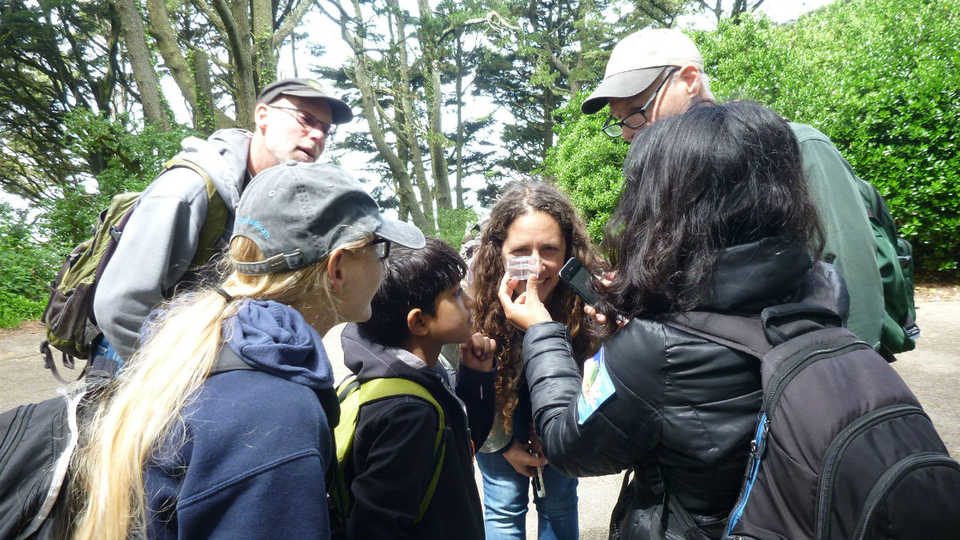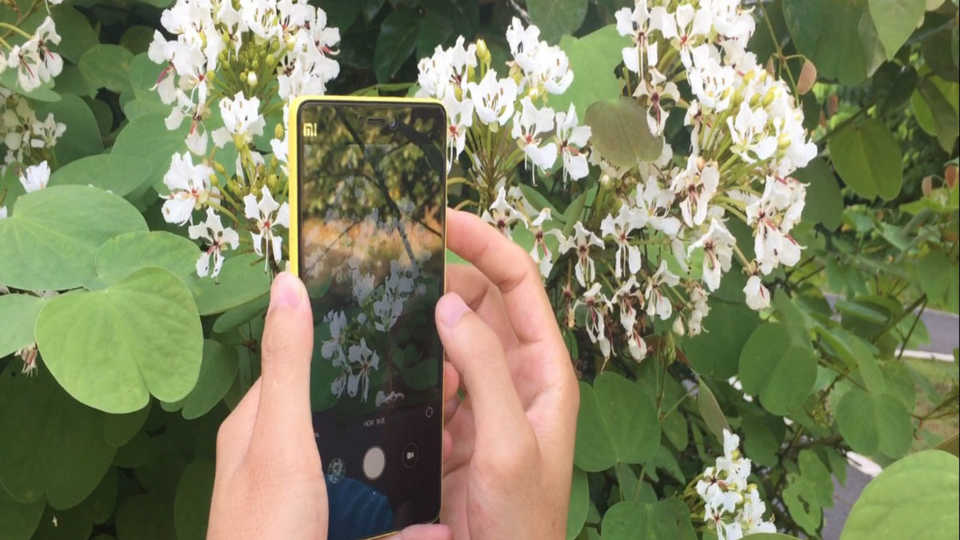The California Academy of Sciences is a renowned scientific and educational institution dedicated to exploring, explaining and sustaining life on Earth. Based in San Francisco’s Golden Gate Park, it is home to a world-class aquarium, planetarium, and natural history museum, as well as innovative programs in scientific research and education—all under one living roof. Visit calacademy.org.
Second Annual ‘Challenge’ Grows to 16 Participating Cities Nationwide. Announcement of Results on Earth Day, April 22
SAN FRANCISCO AND LOS ANGELES, CA (March 23, 2017) – With citizen and community science initiatives picking up steam, this year’s City Nature Challenge will span 16 cities across the United States. Kicking off April 14 at 12:01 am in each time zone, the challenge runs through April 18, 11:59 pm. After launching the first-ever City Nature Challenge in 2016, the Natural History Museum of Los Angeles County (NHMLA) and San Francisco’s California Academy of Sciences are hosting its second—and much larger—effort. The multi-city event calls on current and aspiring citizen scientists, nature and science fans, and people of all ages and science backgrounds to observe and submit pictures of plants, animals, and fungi using the free app iNaturalist. The event coincides with National Citizen Science Day on April 15, and its results will be announced on Earth Day, April 22.
There is nature in every city, and the best way to study it is by connecting community and scientists through citizen science. With human populations worldwide increasingly concentrated in cities, the study of urban biodiversity is quickly becoming integral to the future of plants and wildlife on Earth. Large pools of data, including those built through the free app iNaturalist and natural history museums, help authorities make informed conservation decisions that allow humans to coexist sustainably with the plants and animals in their neighborhoods.
Last year’s weeklong City Nature Challenge event invited participants in both L.A. and San Francisco to observe and submit pictures of wildlife they encountered in the city, using iNaturalist. Between the two cities, participants added 21,408 observations of nature to iNaturalist, all of which are points of data that scientists can use to understand and conserve urban wildlife. Although a competition, both museums shared the goal of building community around nature discovery and observation.
This year, the Challenge is expanding, and will take place in 16 cities across the United States with participation from 23 different partnering institutions. Last year’s challenge gave scientists insight into the biodiversity of two major cities in California, but this year, we will look at nature through a national lens. Citizen scientists from all over the country will not only represent their respective cities in this national challenge, but help our understanding of wildlife in the United States as a whole.
For both budding and veteran citizen scientists, participating couldn’t be easier.
- Download the free iNaturalist app to your mobile device.
- Between April 14-18, take photos to make “observations” of wild plants and animals in your backyard, while hiking in a park, along your walk to school or work—anywhere you find nature.
- Upload your photos to iNaturalist.
- Learn more as the iNaturalist community helps identify your observations.
Scientists can’t be everywhere at once, and without citizen scientists, they’d miss some incredible finds. During the 2016 City Nature Challenge, participants in San Francisco spotted two endangered, iconic Bay Area species: the Mission Blue butterfly and the San Francisco garter snake. In Los Angeles, famed P-22—the Griffith Park mountain lion—appeared on camera trap footage on the last night of the contest. With 16 cities participating in 2017, citizen scientists can truly make an impact and discover something amazing! Ultimately, every observation helps us understand urban nature, so we can begin to build cities that work better for humans and wildlife.
Participating Cities:
- Austin
- Boston
- Chicago (Cook County)
- Dallas / Fort Worth
- Duluth / Twin Ports
- Houston
- Los Angeles
- Miami (Miami-Dade County)
- Minneapolis / St. Paul
- Nashville
- New York
- Raleigh (Research Triangle Area)
- Seattle
- Salt Lake City (and surrounding counties)
- San Francisco
- Washington D.C. Metro Area
Partner Organizations:
- The California Academy of Sciences
- Natural History Museum of Los Angeles County
- Metropolitan Field Guide
- Natural History Museum of Utah
- Texas Parks & Wildlife
- Audubon Texas
- Minnesota Sea Grant
- Natural Resources Research Institute
- University of Minnesota Extension
- Chicago Academy of Sciences' Peggy Notebaert Nature Museum
- Habitat 2030
- Cumberland River Compact
- Nashville Metro Parks
- Environmental Studies at Brandeis University
- Encyclopedia of Life
- Earthwatch Institute
- MIT Senseable lab
- New England Aquarium
- Macaulay Honors College at CUNY
- Biophilic D.C.
- Virginia Master Naturalist program
- AAAS Affinity Group for Crowdsourcing and Citizen Science
- National Geographic Society
- North Carolina Museum of Natural Sciences
- Frost Museum of Science
- NEOSEC (New England Ocean Science Education Consortium)
iNaturalist
Signing up is easy and free. Visit inaturalist.org from your browser, or download iNaturalist from the App Store or Google Play store.
Social Media
#CityNatureChallenge
The Natural History Museum of Los Angeles County has amassed one of the world’s most extensive and valuable collections of natural and cultural history—with more than 35 million objects, some as old as 4.5 billion years. The Natural History Family of Museums includes the NHMLA, the La Brea Tar Pits Museum (Hancock Park/Mid-Wilshire), and the William S. Hart Park and Museum (Newhall, California). The Family of Museums serves more than one million families and visitors annually, and is a national leader in research, exhibitions and education. Visit nhm.org/nature.
Press Contacts
If you are a journalist and would like to receive Academy press releases please contact press@calacademy.org.
Digital Assets
Hi-res and low-res image downloads are available for editorial use. Contact us at press@calacademy.org to request access.


